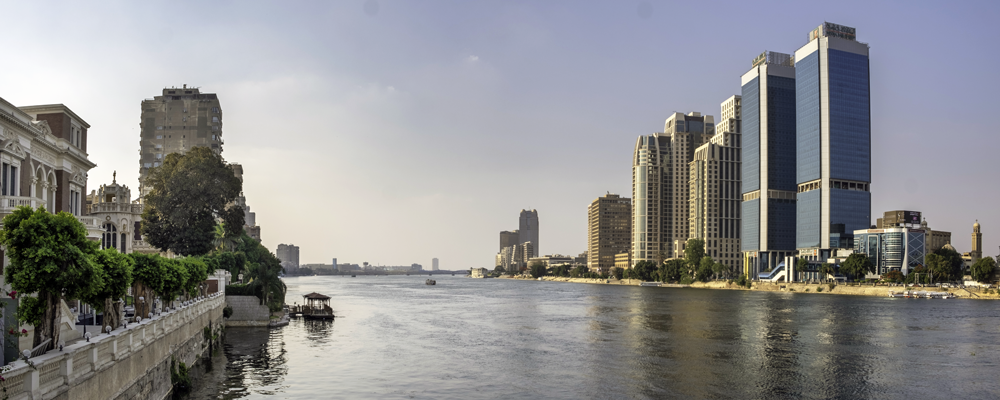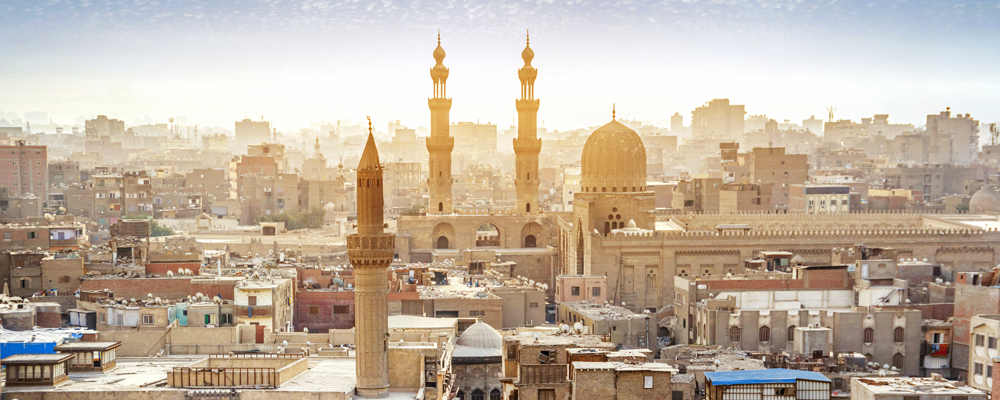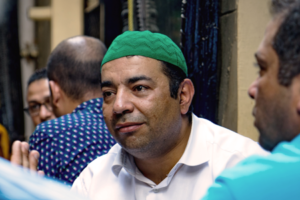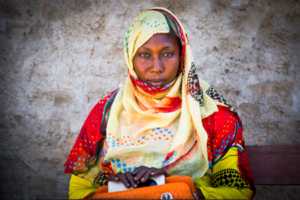In This City is a challenge to journey with us in prayer for 12 key cities in 2020. We ask you to commit to praying for fruit that will ripen and bear the seeds for mature, vibrant, and multiplying churches across the Arab world.
Introduction
We journey from the south of the Arabian Peninsula to the northern deserts of Africa, to the city of Cairo. Founded in 2000 BC, it is one of the most famous metropolises of all time, and one of the continent’s largest cities for thousands of years. Its Arab name, Al-Qāhirah, means ‘The Victorious’. Long before New York came along, this was the ‘city that never sleeps’.
Cairo is a place of physical contrast. The Nile’s shorelines are bordered with lush vegetation as well as towering skyscrapers. Ancient and new buildings compete across the horizon, and then give way to the deserts of gold, red, and brown. You can see the divergence between East and West: the Pyramids of Giza to the south and an obelisk marking Heliopolis to the north (where Plato once studied) are juxtaposed with modern landmarks of Western-style hotels and apartment buildings. Between these extremes are other architectural monuments, dating from Roman, Arab, and Turkish times.
 Cairo heaves with life. Over 20 million people call it home. Thousands more travel into the city daily, from all governorates, to work or to access social services. Most governmental agencies, health care, and amenities lie within Cairo’s boundaries. Its basic infrastructure and the number of employment opportunities make for a very crowded city. The Cairo metro, one of only two in Africa, sees over a billion passenger rides each year. Cairo is also home to thousands of refugees from different nations. Many of them come there to live as it is safer than their homeland and the cost of living is lower. Rough estimates reckon that over two million Sudanese live in Egypt; the majority in Cairo.
Cairo heaves with life. Over 20 million people call it home. Thousands more travel into the city daily, from all governorates, to work or to access social services. Most governmental agencies, health care, and amenities lie within Cairo’s boundaries. Its basic infrastructure and the number of employment opportunities make for a very crowded city. The Cairo metro, one of only two in Africa, sees over a billion passenger rides each year. Cairo is also home to thousands of refugees from different nations. Many of them come there to live as it is safer than their homeland and the cost of living is lower. Rough estimates reckon that over two million Sudanese live in Egypt; the majority in Cairo.
About Cairo
Population: Almost 20 million, which is 10.6% of the country’s total population, are squeezed into Cairo.
Religion: Muslim (predominantly Sunni) 90%, Christian 10% (majority Coptic Orthodox, but also including Armenian Apostolic, Catholic, Maronite, Orthodox, and Anglican)
Ethnic groups: Egyptian, Sudanese, Syrian, Iraqi, Libyan, Yemeni
Geographical size: 3,085 km² | 1,917mi²
Location: Northeast Egypt
Key historical events: Some 5000 years ago, a thriving metropolis named Memphis existed approximately 15 miles (24 km) southwest of Cairo. Today, Memphis lies mainly in ruins, but the Pyramids of Giza dominate the landscape in its place. About 2,000 years ago, the Romans occupied a town on the site of present-day Cairo and called it the Babylon Fortress. Contemporary Cairo later sprang from the town of Al-Fusṭāṭ, founded as a military encampment in AD 641 by an Arab general who brought Islam to Egypt. Egypt was ruled by numerous empires, including the Ancient Egyptians, the Romans, and the Ottoman Turks, gaining independence from England in 1922 under King Farouk. A military coup in 1953 removed the monarchy from power, making Egypt a Republic. Fast forward to 2011: the Egyptian Crisis began after the 25 January revolution when hundreds of thousands of protesters took to the street to force President Mubarak from office. After mass protests, a coup d’état, and violence, Abdel Fatteh el-Sisi rose to become president. The political situation became more stabilised in 2014.

Challenges
People

Photo by Mark Fischer
As tourism is one of the leading sources of income, providing jobs for 12 per cent of the country’s workforce, Egypt’s people know how to accommodate temporary visitors. Yet for many years, the country has been under heavy scrutiny by international human rights organisations for arbitrary detentions, sentences without trials, and the suppression of political opposition through torture. Intolerance is one of the greatest challenges in Egypt, particularly affecting Sudanese nationals. The country also faces problems with illicit drug trafficking and is the region’s largest supplier of cannabis, heroin, and opium to Europe. Roughly one-third of Egypt’s rapidly growing population is under the age of 15, so its social climate is of grave concern for future generations.
Seekers
There are a significant number of Coptic Christians in Egypt, but persecution against them has been ongoing for many years, and it continues today. Since 2011, hundreds of Egyptian Copts have been killed in sectarian clashes, and many homes, churches and businesses have been destroyed. The abduction of Coptic Christian women and girls remains a serious problem. The discrimination and persecution suffered by these Christians have led to an oppressive fear of associating with seekers trying to access the gospel. Similarly, seekers are fearful to mix with Copts or declare new faith, as they witness the persecution Christians face. State-issued identity cards include each individual’s religious status and no one is allowed to change their religious status.

Photo by Dominique Catton
Many Nubian Sudanese hunger for the truth, but available and experienced workers are few. A lack of education and repressive tribal beliefs mean that superstition, sorcery, and witchcraft are rife. Questioning traditional practices is discouraged and is believed to bring bad omens.
Team
Team members serving Sudanese nationals live in four different areas of Cairo. However, they are loaded with other responsibilities, and often lack the time they’d like to dedicate to this ministry. Rising inflation adds strain to family funds and limits their time to reach out.
Prayer points
- Pray for greater tolerance and understanding by the state and people of other religions towards the beliefs of the Christians in Egypt. Pray for Copts who have been experiencing ongoing persecution for decades. Pray that the families of victims lost to the violence will find peace and not seek vengeance.
- Pray for courage for new believers facing challenges from their families and tribes. May God fulfil their needs.
- Ask God to bless and strengthen the team to continue reaching deprived areas. Pray for unity and harmony while serving, and that they will experience much spiritual growth for ministry. Pray especially for the ministry programs needed to spread the gospel and offer discipleship.
- Intercede for the Sudanese refugees living in Cairo. Opportunities for sharing the gospel are few – often seekers cannot afford to travel to meet with local believers. There is a great need for more workers. Pray for peace in Sudan, so that new Sudanese believers can return to their homeland and be used by the Lord to spread the word to their families and tribes.
Thank you for praying with us
Next month, we’ll pray for the city of Erbil in Iraq.